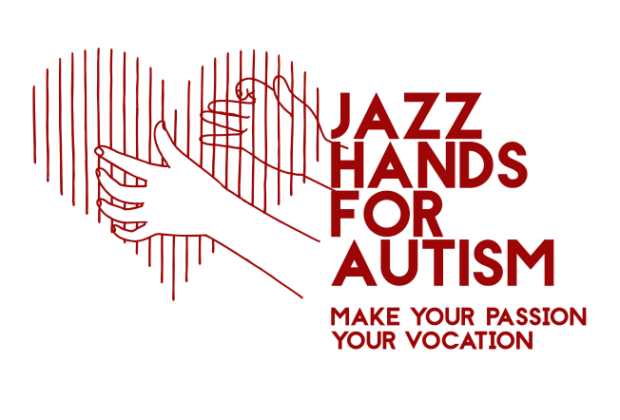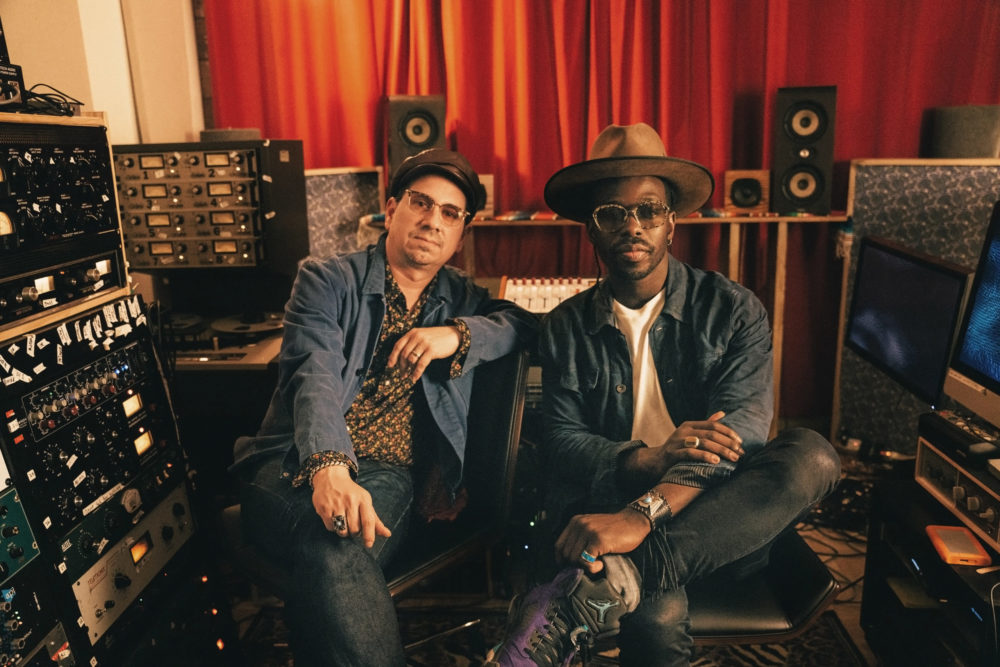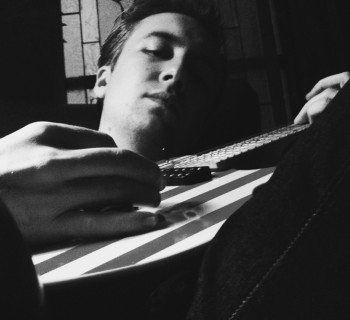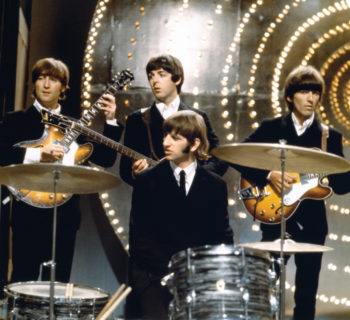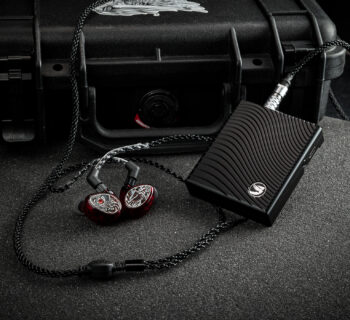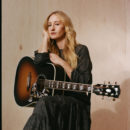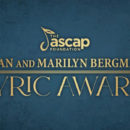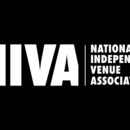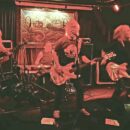In 1972, the Autism Society launched the first annual National Autistic Children’s week, which evolved into Autism Acceptance Month (AAM). April is now National Autism Awareness Month, and April 2 is World Autism Awareness Day. But for Jazz Hands For Autism founder Ifunanya Nweke and her dedicated team of advisors, staff, instructors and coaches, every day offers a fresh opportunity to serve a community of talented musicians and musically inclined people of all ages who just happen to be on the spectrum.
Founded in 2014 by Nweke––a behavior interventionist and a musician herself––Jazz Hands For Autism is a unique non-profit post-secondary music education and vocational training program dedicated to the teaching and training of these often underappreciated musicians whose talents are too often hidden or overlooked. Driven by a passion that has its roots in a childhood home where she always advocated for and defended her younger brother (who is neurodivergent), Nweke’s goal was to create a platform that enables individuals on the autism spectrum who love music and performing to express and explore their talents.
Over the years, she has continued to fulfill this mission with the help of a growing staff of mentors who have either acted as behavioral interventionists or have the ability to coach individuals on the autism spectrum. Though her mission is ever-evolving, under Ifunanya Nweke’s vision and direction, JHFA has grown into a talent advocacy group and an educational program that provides musician focused job-readiness training and performance and job scouting for musicians on the autism spectrum. Education is ke,y not only to the world at large that needs to understand more about autism, but in-house as well. Nweke’s passion for learning extends now to her dynamic web docu-series called 3 Minutes with Ifu, where she interviews influential people in the music industry and experts from mainstream autism organizations with the goal of advancing the importance of neurodiversity.
Thus far, Jazz Hands For Autism has provided support and performance opportunities for over 200 individuals with autism and their families (with 30 enrolled at any given time) via their two main programs, the Jazz Hands Concert Series (JHCS) and the multi-faceted Jazz Hands Musicians Academy (JHMA). The concert series is a twice a year festival event where selected musicians on the autism spectrum of all ages, genres and skill levels come to the stage to share their gifts in front of a supportive and diverse audience. These events foster socialization and confidence building, while offering an opportunity and safe space to explore the possibility of a career in music.
"JHFA is breaking through the veil of under-representation of the neurodivergent music community by reaching out to local music communities such as local concerts, music festivals, and studios to create an environment of inclusivity and diversity within the music industry,” says Esbeth Heredia, the organization’s Job Placement Coordinator."
The Musicians Academy is a comprehensive 3-stage vocational and integrated employment program that provides individualized social, professional and musical training tailored to encouraging musicians on the spectrum (age 18+) to succeed in music-related jobs. Its three primary functions are job training (music theory, music software, instrument/onstage training, digital branding, etc.), job development (resume/cv/portfolio creation, job searching, professional development and work-adjustment training) and skills and interest-based job placement. JHMA students and graduates work and are paid for performing, collaboration projects, teaching studio work, original compositions, etc. In addition to the academy for those 18 and older, the organization has a Jazz Hands Junior Academy (JHJA), a newly launched program that offers private music lessons to school age children and teens from ages 8-17. There are over 40 different courses offered.
Despite its name, Jazz Hands For Autism is not just for jazz musicians. It’s a musical theatre term that refers to a dramatic gesture signifying the end of a production. In the basic jazz hands position, the hands are open, the palms face forward, and the fingers are splayed. Nweke says, “It represents the idea of triumph, something conquered. In the autism realm, handclapping with jazz hands reflects their and our excitement as we triumph over stigma that creates barriers to the creativity and expression of individuals on the Autism Spectrum.”
One of the most exciting new outgrowths of Jazz Hands For Autism is the commercial release of three albums by JHFA affiliated musicians/artists, each in a different genre––all recorded, engineered and/or promoted by the organization. Turquoise Apricot by singer-songwriter Sam L. Williams is the first full-length project by this ‘60s aficionado, and is an ode to the music and instrumentation of that era, with a modern twist. Sean McRae’s Racer is a multi-genre neo-soul jazz album fully produced by the artist, featuring saxophonist Rickey Washington (father of acclaimed jazz artist Kamasi Washington), music teacher George Earth and others. Shayne Holzman’s full-length debut recording under the name Starving Darling (also the album title) is a re-imagined update of his 2019 EP. Offering an expansion of her indie rock repertoire, she expands her instrumentation by adding piano and guitar in the mix while creating a fascinating melting pot of buzzing guitars, knocking drums, melodic keys and her powerful voice.
“These albums are a cumulative expression of everything we do at Jazz Hands For Autism,” says Nweke. “They are the deliverables of a program that not only provides training to musicians learning to sing, play instruments, compose and understand music theory, but also how to record with Pro Tools and Logic, do digital marketing, create an EPK and adjust to studio, work and gig environments.”
Outreach Coordinator Folarin Ajileye adds, “Our musicians at JHFA are defining the new standard when it comes to diversity, acceptance and what it means to be talented within the music industry. We have committed to not only promote the concept of neurodiversity so as to open more doors, but we are bringing a fresh perspective from musicians who originally would go unheard.”
The concept for Jazz Hands For Autism took root just months after Nweke graduated from her undergraduate studies at UCLA. She was working with a colleague to complete her training to be a behavior interventionist when she met a young student named Ruben. Ruben, who was the only person with autism in his group, walked into his music class, spontaneously sat down at the piano and began singing a song. His classmates flocked to the remaining instruments and a jam session broke out. Nweke quickly realized there must be more musicians on the autism spectrum, with their potential to be leaders yet to be revealed. She and some likeminded associates put on the first Jazz Hands Concert a few months later––and the creation of an actual, now thriving non-profit took shape with a literal ensemble of likeminded souls.
“Ruben had a naturally beautiful voice and velvety tone,” she says. “He knew the chords to play and was a serious natural talent. He was a leader in that setting, which was a stark contrast to his other classes where he would sit off to the side, managing his "challenging behaviors. ” That day made me realize that when we give individuals with autism room to be who they naturally are, they can not only communicate but build and lead a community around themselves. I see the individuals we work with not just as people with autism, but as talented, budding artists who need their creativity and skills supported, nurtured and advocated for. I see autism not as a limiting or defining factor of ability, but rather an indicator of where the individual needs additional support and scaffolding. I also believe that it behooves us as a society, and more specifically as an industry (the music industry), to find ways to create opportunities for Neurodivergent creatives who are on the autism spectrum.”
Contact Jazz Hands for Autism, 424-298-8702
info@jazzhandsforautism.org

